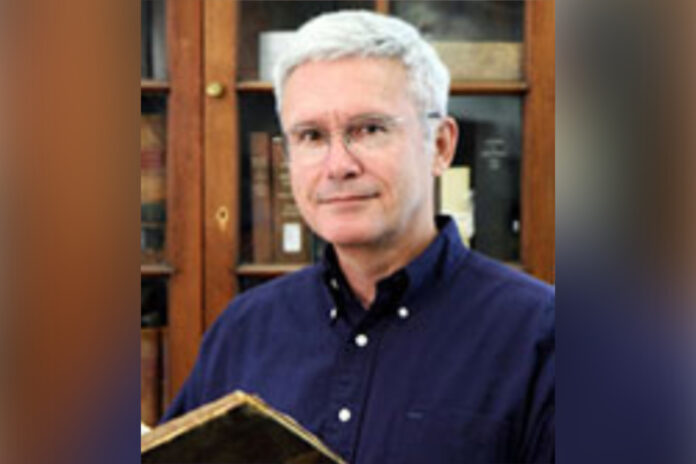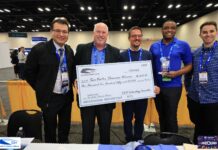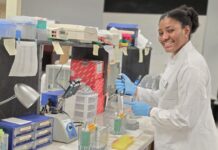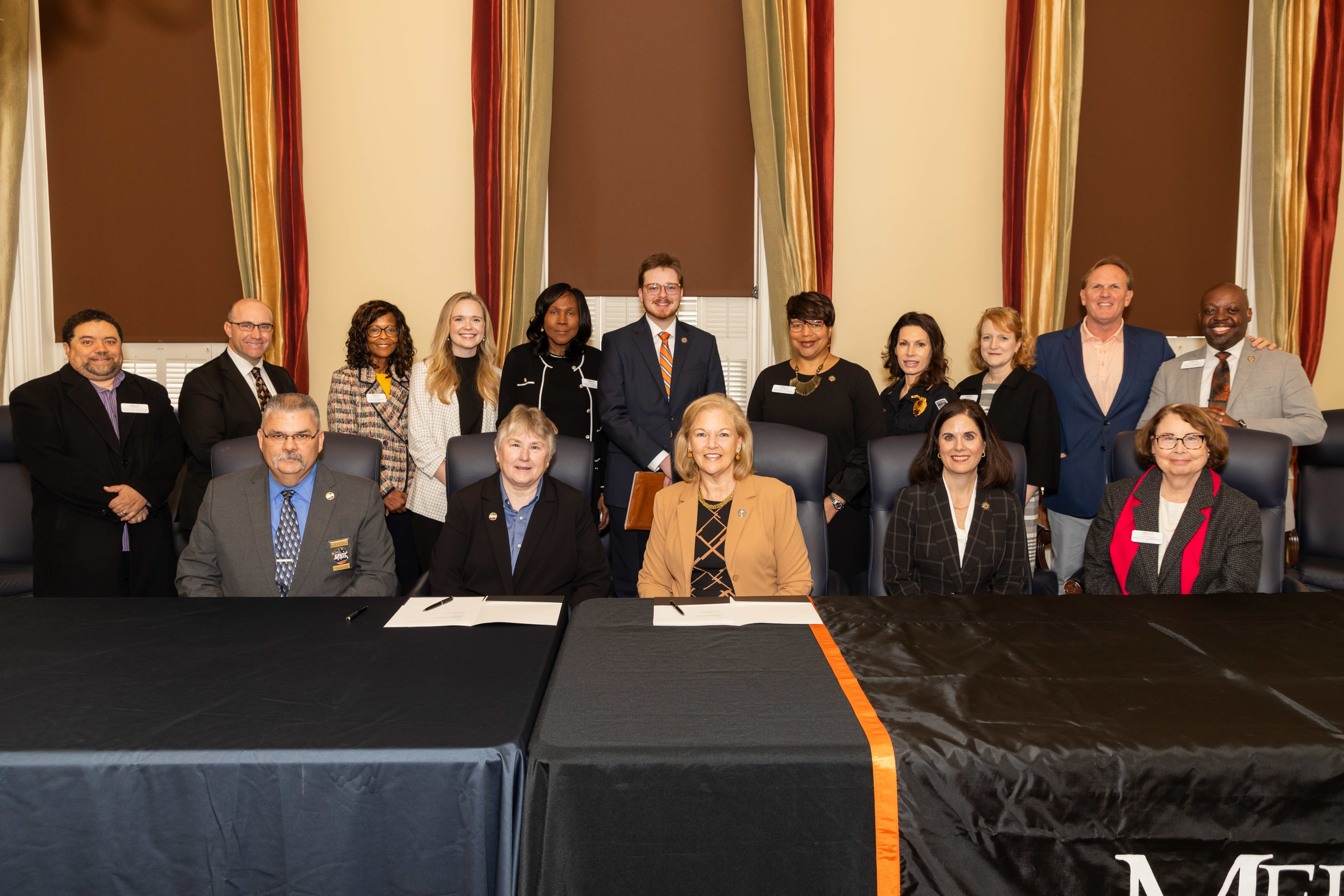Mercer University religion professor Dr. R. Scott Nash has received this year’s EXPy Award for excellence in experiential learning for his class on death and dying.
The award, short for Excellence in Experiential-Learning Programs, highlights the work of Mercer College of Liberal Arts and Sciences faculty members who incorporate an experiential- or engaged-learning component within their courses. Dr. Nash, the Columbus Roberts Professor Emeritus of New Testament, also received the 2024 Faculty of the Year Award from the Student Government Association.
Dr. Nash’s winning course featured experiential learning activities such as volunteering with a hospice and a virtual death simulation, with the purpose of making death less abstract for students.
“It’s another way of keeping the issues of the course real and allowing students to confront the existential reality of their own dying by being with people who are facing that reality now,” Dr. Nash said.
As part of the class, each student spent 30 hours as a hospice volunteer to help caregivers of dying patients. Students stayed with their assigned patients, so caregivers could take a break, run errands or accomplish other tasks.
The students didn’t perform medical tasks but rather sat and talked to their patients. Some read out loud or played a musical instrument. Sometimes, students made deep connections with their patients.
“One man who was dying had loved fly fishing, but no one in his family was interested in it,” Dr. Nash said. “The student who was assigned him had an interest, and he taught her how to fly fish. They actually went out fly fishing. And before he died, he gave her a fishing rod and equipment, so she could continue to do that.”
Caroline Zueck, who graduated with a Bachelor of Science in biology in 2024, recalled spending time with her patient, a man named William.
“He was very, very sweet. He was mostly deaf and mostly blind, so we would mostly just sit together, and I would occasionally read to him,” she said. “We would watch TV, and we would sit outside, and he told me a lot about his family, and I really loved to hear about his career and his life.
“It was actually his birthday one day when I visited, and I brought him cupcakes, and it was just so sweet to see how happy it made him, and his daughter was there. It was a really, really sweet experience, and he ended up passing the day after.”
Zueck said the class gave her a new outlook on death.
“I felt not necessarily like I was giving back to the community in any way but more like the community was giving to me in the sense that I was able to gain perspective and knowledge from this individual who I would have never met,” she said.
Students in the class also participated in a virtual death simulation in which the students chose someone in the class to die.
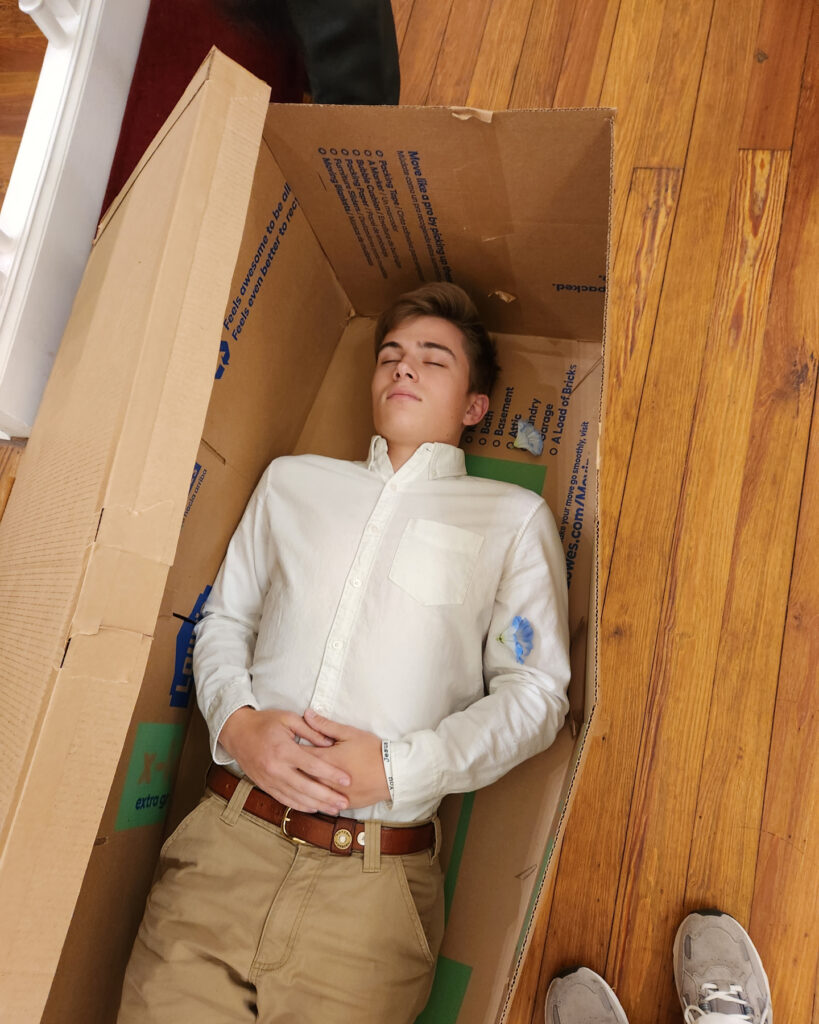
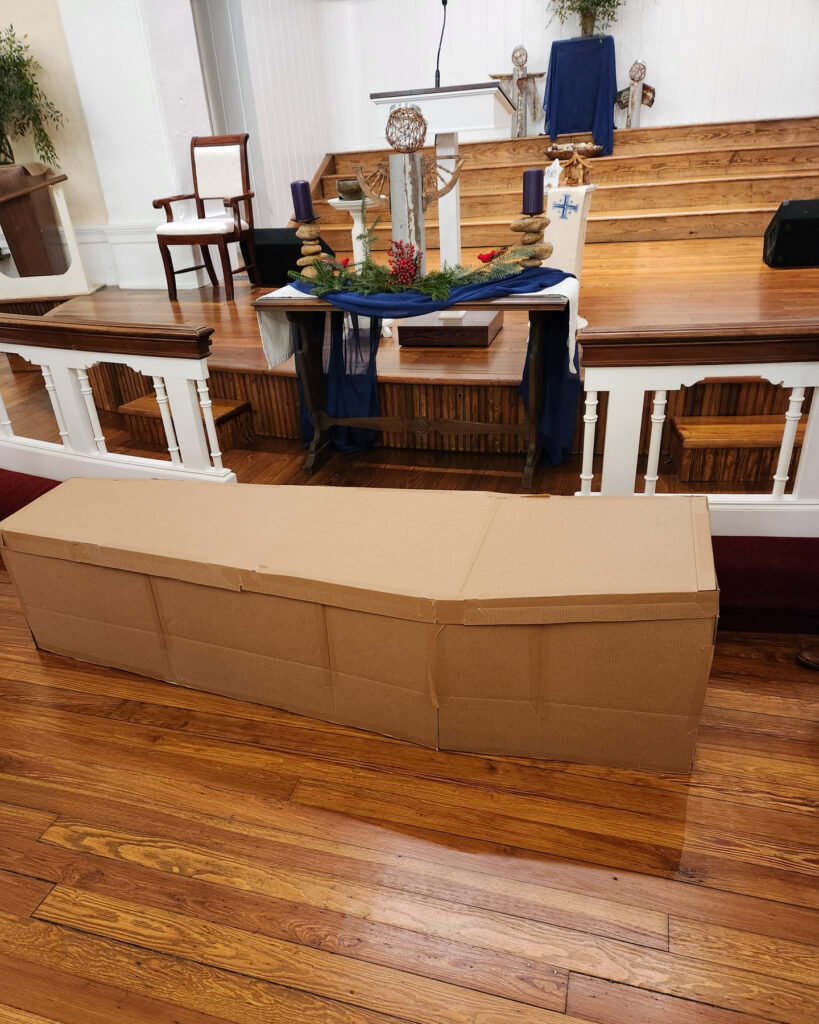
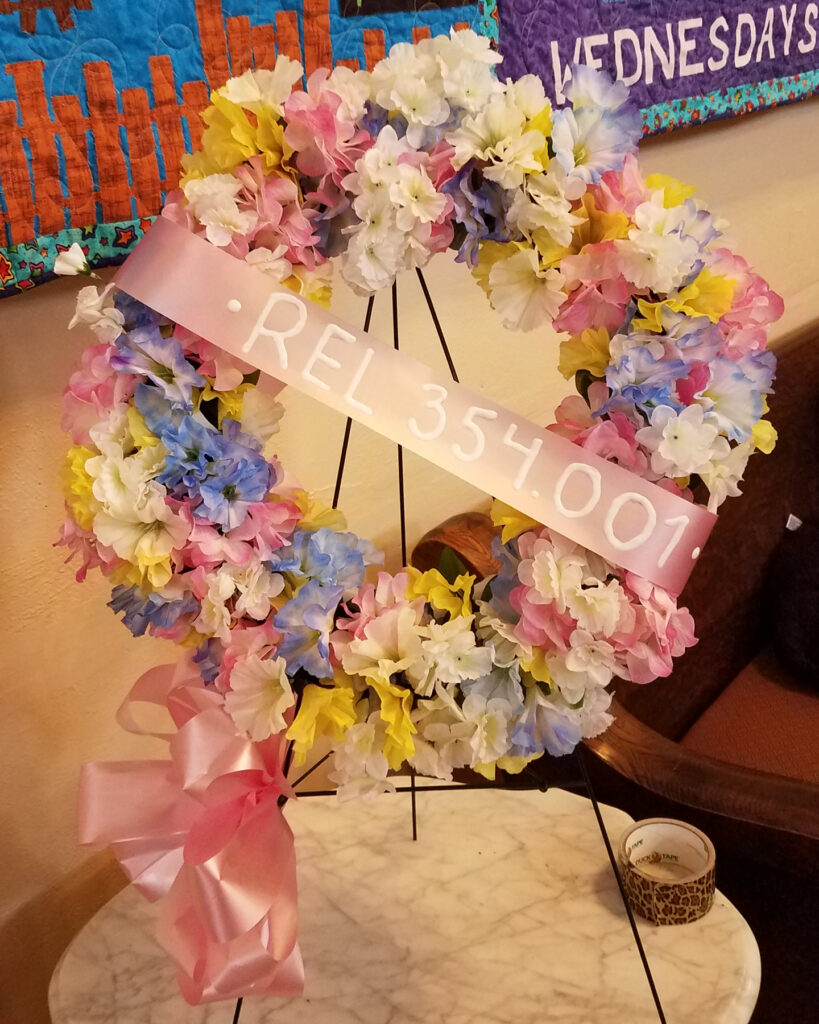
Working in groups, they came up with a terminal illness scenario, investigated all the medical issues involved, examined the legal aspects, found bereavement resources in the community, and planned and conducted a funeral.
“This has been taken very seriously by the students,” Dr. Nash said. “In fact, there have been times when family members have come to the funeral, and the great news is they get to take their child home with them.”
Matthew Smith, who graduated with a Bachelor of Business Administration in management in 2024, said the class was eye opening.
Volunteering with the hospice “definitely put into perspective the content of the class and what we were talking about,” he said.
“We talked about the process of death and dying and what that does to you emotionally but then also to the people around you. When we were able to interact with either the families of the patients or the patients themselves, we were able to see just how integral it is to understand the psychological processes of what’s going on,” he said.
Dr. Nash started teaching his death and dying course in 1996. He retired this year.

